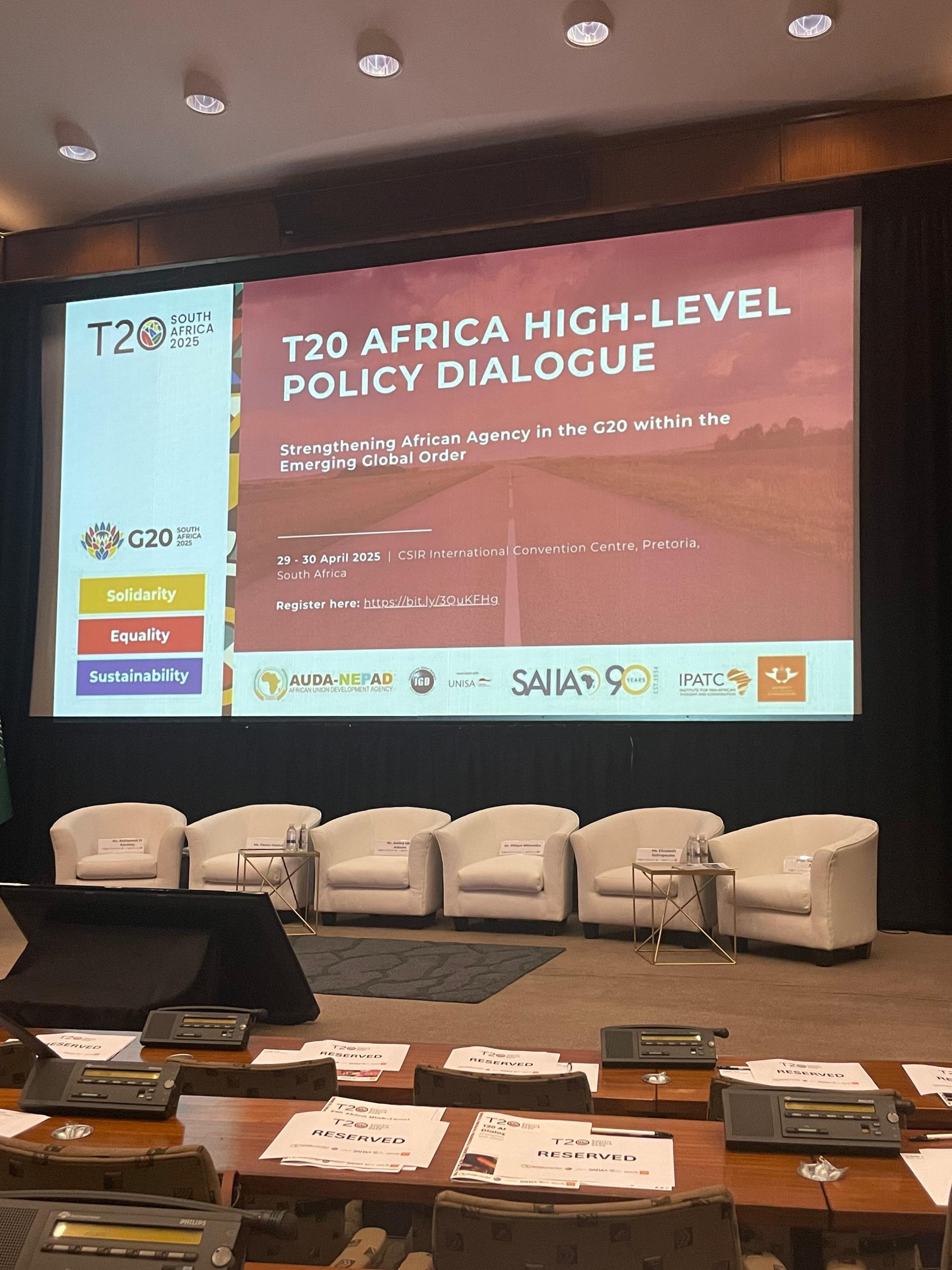
ASCIR Calls for a Digital Education Transformation Framework for Africa at the T20
Afro-Sino Centre of International Relations (ASCIR) participated in the just-ended T20 Africa high-level policy dialogue under the theme: “Strengthening African agency in the G20 within the emerging global order.” The Centre advocated for a Digital Education Transformation Framework (DETF) for Africa as part of efforts to enhance the continent’s ability to harness the benefits of a global digital economy. At the two-day T20 Summit held in Pretoria from April 29-30th, the Deputy Director of ASCIR, Mr. Arhin Acheampong, while speaking on the high-level panel on Digital Transformation, reiterated the urgent need for Africa to develop and adopt a framework which will ensure digital skills training and human capacity building of Africans.
Mr. Acheampong announced the blueprint for a digital education transformation framework which ASCIR’s education pillar, under the leadership of Professor Adams Bodomo, has developed and urged stakeholders to support efforts at developing it into a framework for the continent. He opined that, as the continent with one of the highest digital illiteracy rates in the world, Africa will be better served if the continent focused its digital transformation efforts on skills training of Africa’s youth. The three fundamental elements of the digital space are digital skills, digital infrastructure and the digital market or economy. According to Mr. Acheampong, digital skills training for Africa is pivotal in harnessing the potential of the digital market. This is so as it is one of the surest ways to get governments and private sector actors to invest in digital infrastructure. More importantly, he stressed that for the continent to become producers and not consumers within the global digital economy, Africa will have to invest heavily in the digital skills of its youth.
Furthermore, in advancing his argument for a DETF for Africa, Mr. Acheampong suggested that such a framework will ensure communication, coordination and learning among member states. These knowledge sharing efforts are vital in ensuring, at the micro level, efforts at integration among African states. He noted that these efforts could hopefully lead to the emergence of agreeable policies on the continent concerning digital payment systems, tariffs, and climate smart solutions. At the country-level, a digital education transformation framework will allow for continuity of digital education efforts across governments.
In citing Ghana as an example Mr. Acheampong invited participants to consider the potential impact of such a framework if initiatives like President John Mahama’s plan to train one million coders and offer 1,000 scholarships to students within ECOWAS to study in Ghana were implemented under a structured framework. Such a framework, he suggested, could facilitate the replication of these policies across the continent, enabling African students to pursue education in various African countries and to harness digital solutions to address the continent’s development challenges. Such a framework will bridge the two Africas (micro-level & macro-level) that exist in varied ways, where African students will understand first-hand the issues the continent faces with trans-border transactions, trans-border movement of people, language, cultural differences among others, to inspire solutions.
Re-echoing the voice of the Deputy President of South Africa, H.E. Paul Mashatile in his opening remarks, “Africa is ours and we must create the Africa we want.” To do this, a concerted effort which rolls in Africa’s youth in exercising agency in shaping the Africa we want is crucial. Former CEO of AUDA-NEPAD, Dr. Ibrahim Mayaki, in his closing remarks stressed the importance of the T20 within the G20 architecture by noting, “the T20 makes the G20 more intelligent.” Africa and African institutions and agencies should continue to play crucial roles within multilateral institutions like the G20 and mechanisms such as the T20 to amplify African voices.
The centre expresses its gratitude to AUDA-NEPAD, IPATC, SAIIA, IGD and other partners for a successful summit and wish South Africa and Africa well as it holds the Presidency of the G20.